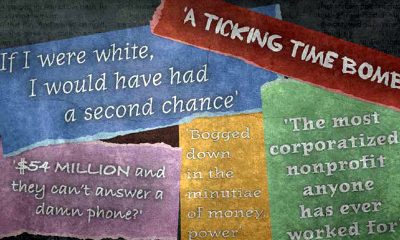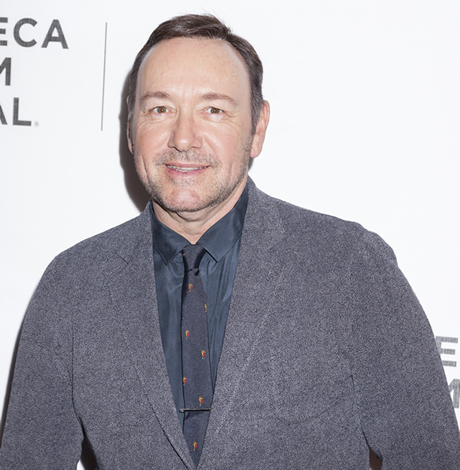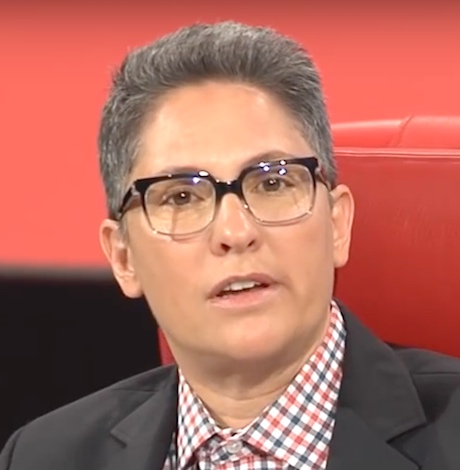Arts & Entertainment
Spacey lawyers claim 2016 groping incident was consensual
Judge says disgraced actor must appear at Jan. 7 hearing
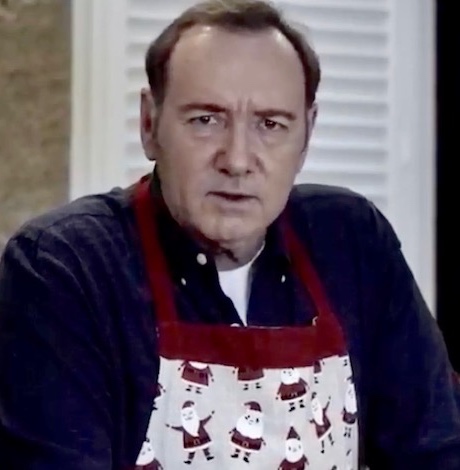
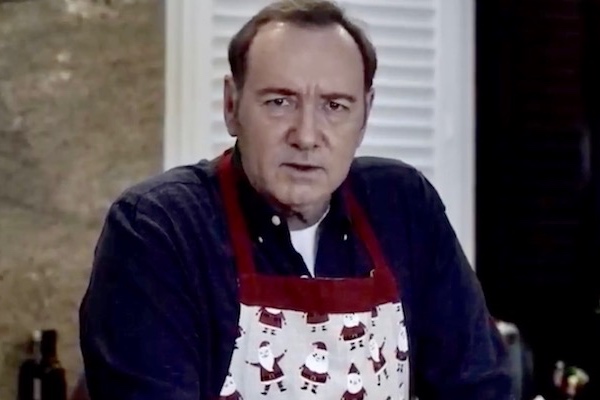
Disgraced gay actor Kevin Spacey disputes the old adage that any publicity is good publicity. On Dec. 31, Nantucket, Mass. District Court Judge Thomas Barrett denied a motion filed by Spacey’s legal team asking to waive his Jan. 7 arraignment appearance on one count of felonious indecent assault and battery. Through his attorneys, Spacey argued that, “my presence will amplify the negative publicity already generated in connection with this case.”
The motion also indicated that Spacey intended to plead not guilty to the sexual assault allegation. If convicted, the actor faces up to five years in prison or up to 2½ years in jail and a requirement to register as a sex offender, according to court documents.
In response, Cape and Islands Assistant DA Michael K. Giardino argued that under rules for criminal procedure, Spacey’s appearance is required at the arraignment.
More details about the case and Spacey’s legal strategy emerged during the initial 36-minute “show-cause” hearing Dec. 20 before the Clerk magistrate to determine if probable cause existed to merit a criminal charge. Spacey defense attorney Alan Jackson, a former Head Deputy District Attorney for the Los Angeles County DA, claimed that the 2016 groping incident was actually a consensual encounter initiated by the then-18-year-old alleged male victim. Spacey’s other legal team members include Bryan J. Freedman, a top-rated LA-based Entertainment & Sports attorney, and Juliane Balliro, a criminal defense attorney based in Boston.
During questioning, Jackson focused on the report by Massachusetts State Police Trooper-Detective Gerald F. Donovan that serves as the basis for the assault charge. In the police report, the still unidentified alleged victim, who worked as a busboy at the restaurant, told detectives he was the one who first approached the actor inside the bar area of the Club Car, a Nantucket restaurant, in July 2016. He admitted that he lied to Spacey, telling him that he was a 23-year-old college student, when he was actually 18 and not in college.
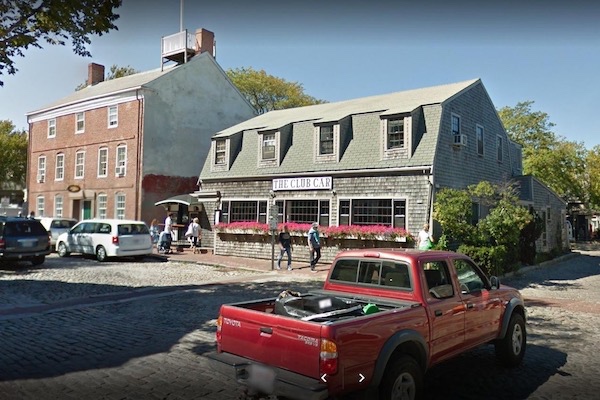
According to Donovan’s report, the alleged victim said he drank between eight and 10 alcoholic drinks (a mix of several beers and whiskey) in roughly an hour and a half. He also acknowledged he was intoxicated and that he may have blacked out shortly after Spacey allegedly groped him. He also told Donovan he smoked a cigarette with Spacey and later exchanged phone numbers with him.
Jackson asked Donovan to verify that the alleged victim had told him that the groping went on for approximately three minutes without the alleged victim moving away or telling Spacey to stop.
“That’s an incredibly long time to have a strange man’s hands in your pants, correct?” Jackson noted to Donovan, according to an audio recording of the hearing obtained by The Boston Globe.
“I would agree with that. Yes,” Donovan replied.
According to Donovan’s report, the alleged victim said he was texting his girlfriend at the time of the encounter with Spacey and he sent a video to his girlfriend over Snapchat to prove he was telling the truth. The teen’s girlfriend confirmed to detectives that she had received the video at the time. Jackson noted that both the prosecutor’s office and the defense team had copies of the brief video, which he noted shows an unidentified hand touching another person’s shirt, but does not show anyone being groped.
The alleged victim claimed that it was tough to move away in the crowded bar. He told investigators that he tried to shift his body away from Spacey and to push away Spacey’s hand, but “Spacey kept reaching down his pants,” according to the police report.
Jackson noted that investigators were unable to find anyone who witnessed the actual alleged groping, though Donovan’s report says other people confirmed seeing Spacey and the teenager together at the bar that evening, including one person who said they noticed the teenager at one point turned “pale, blank, a bit frightened.”
“After the alleged assault, which the victim claimed he was frozen with shock throughout, the actor went to the restroom at which time the young man left. He told investigators Spacey texted him ‘I think we lost each other,’ shortly thereafter, according to the complaint. The alleged victim did not respond,” The Wrap reported Dec. 27.
Donovan’s police report also notes that the alleged victim told detectives that he ran home after the incident and told family members about being groped that night.
“[The alleged victim] said the whole thing was embarrassing and has had a ‘profound emotional effect’ on him,” Donovan reported. “[He] called the police because he doesn’t want what happened to him to happen to anyone else.”
According to the court documents, the teenager first contacted the Nantucket Police on Oct. 31, 2016 reporting the assault. That’s one year before actor Anthony Rapp told Buzzfeed in a shocking Oct. 2017 interview that Spacey made sexual advances to him when he was a 14-year-old boy. Spacey, then aged 26, is alleged to have invited Rapp to his New York apartment for a party where he allegedly assaulted Rapp. Spacey later apologized publicly and then awkwardly disclosed that he is gay.
But Nantucket law enforcement apparently didn’t act in the 18-year-old’s case until his mother, former Boston WCVB news anchor Heather Unruh, held a press conference on Nov. 8, 2017 disclosing that her son had been sexually assaulted by the actor.
“My son was not of legal age to drink alcohol. He told Kevin Spacey that he was of legal age. But whether he was over 21 or not, Kevin Spacey has no right to sexually assault him. There was no consent,” The Wrap reported Unruh as saying. “Kevin Spacey bought him drink after drink after drink and when my son was drunk Kevin Spacey made his move and sexually assaulted him….We want to make it clear, this was a criminal act.”
Unruh added: “The victim, my son, was a starstruck straight 18-year-old young man who had no idea that the famous actor was an alleged sexual predator or that he was about to become his next victim.”
Unruh told reporters that her son didn’t report the assault at the time because he was embarrassed and scared. Her family decided to come forward after others went public with allegations of sexual misconduct against Spacey and other celebrities, she said.
The Nantucket investigation started after the alleged victim spoke with Donovan on Nov. 22, 2017. The news broke on Christmas Eve that Spacey would face one count of felonious assault.
The Nantucket Police Department referred all questions from the Los Angeles Blade about the initial report to the Cape & Islands DA’s Office where a spokesperson for District Attorney Michael D. O’Keefe said the office had no comment.
LA District Attorney spokesperson Greg Risling told the Los Angeles Blade that Spacey is still under scrutiny in a case that alleges he attacked a man in Malibu in October 2016.
This is the second sexual assault case against Spacey being handled by LA DA Jackie Lacey’s Entertainment Sex Crimes Task Force. Prosecutors declined to prosecute Spacey in the case of an unnamed adult gay man who alleged Spacey assaulted him in West Hollywood in October 1992—the gay man was not a minor at the time of the alleged assault. That case had been submitted to the DA’s office for review by the LA County Sheriff’s Department in August of 2018.
“The reporting party alleged that he was the victim of a sexual assault,” Risling told the Los Angeles Blade. “The allegation is outside the statute of limitations, therefore, an analysis of the strengths and weaknesses of the evidence is not warranted and prosecution is declined.”
Spacey is also under criminal probe in Britain. London’s Metropolitan Police are probing six allegations against Spacey after more men have come forward. A spokesperson for Scotland Yard said the law enforcement agency received three more allegations of sexual assault from February to April of 2018, in addition to the three made in late 2017.
According to Vox.com, there have been allegations made by more than 30 individuals against the actor since Oct. 2017, ranging from sexual harassment to sexual assault.
Neither Spacey nor his lawyers have addressed the allegations publicly, but the actor released a bizarre video Dec. 24 in the voice of Frank Underwood, his character on Netflix’s “House of Cards.” In it he says: “I’m certainly not going to pay the price for the thing I didn’t do.”
Some in social media questioned whether this was Spacey obliquely refuting the 18-year-old’s allegations or whether it was to portray Frank Underwood once again after having been ignominiously fired. Nonetheless—Underwood is a liar, cheat and murderer so it is unclear what message Spacey was trying to convey.
Out & About
The Rare Book Fair is coming to D.C.
Over 35 antiquarian booksellers from across the country to attend

The Capital Rare Book Fair will bring more than 35 antiquarian booksellers from across the country to D.C. from Friday, May 3 to Sunday, May 5 at the historic University Club at 1135 16th St., N.W.
This year, the fair will take over two floors in the illustrious mansion on 16th Street and showcase thousands of beautiful, notable, and rare books, maps, and historic documents from around the globe. Exceptional examples that will be offered include leaf 27 of a 40-leaf xylographic Biblia pauperum, a picture Bible from 1465 for $85,000 from Bruce McKittrick Rare Books, among many other intriguing selections.
Tickets are $50 and more information is available on the event’s website.

Friday, April 19
Center Aging Friday Tea Time will be at 2 p.m. on Zoom. This is a social hour for older LGBTQ adults. Guests are encouraged to bring a beverage of choice. For more information, email [email protected].
Go Gay DC will host “Drag Pageant” at 8 p.m. at Freddie’s Beach Bar and Restaurant. Net proceeds from this event will benefit EQUALITY NoVa, the local nonprofit organization dedicated to advancing equality in Northern Virginia. Attendance is free and more details are available on Eventbrite.
Saturday, April 20
LGBTQ People of Color Support Group will be at 1 p.m. on Zoom. This peer support group is an outlet for LGBTQ People of Color to come together and talk about anything affecting them in a space that strives to be safe and judgment free. For more details, visit thedccenter.org/poc or facebook.com/centerpoc.
Go Gay DC will host “LGBTQ+ Brunch” at 11 a.m. at Freddie’s Beach Bar & Restaurant. This fun weekly event brings the DMV area LGBTQ community, including allies, together for delicious food and conversation. Attendance is free and more details are available on Eventbrite.
Sunday, April 21
Go Gay DC will host “LGBTQ+ Dinner” at 7 p.m. at Federico Ristorante Italiano. Attendance is free and more details are available on Eventbrite.
AfroCode DC will be at 4 p.m. at Decades DC. This event will be an experience of non-stop music, dancing, and good vibes and a crossover of genres and a fusion of cultures. Tickets cost $40 and can be purchased on Eventbrite.
Monday, April 22
Center Aging: Monday Coffee & Conversation will be at 10 a.m. on Zoom. This is a social hour for older LGBTQ adults. Guests are encouraged to bring a beverage of their choice. For more details, email [email protected].
Tuesday, April 23
Pride on the Patio Events will host “LGBTQ Social Mixer” at 5:30 p.m. at Showroom. Dress is casual, fancy, or comfortable. Guests are encouraged to bring their most authentic self to chat, laugh, and get a little crazy. Admission is free and more details are on Eventbrite.
Genderqueer DC will be at 7 p.m. on Zoom. This is a support group for people who identify outside of the gender binary. Whether you’re bigender, agender, genderfluid, or just know that you’re not 100% cis. For more details, visit genderqueerdc.org or Facebook.
Wednesday, April 24
Job Club will be at 6 p.m. on Zoom. This is a weekly job support program to help job entrants and seekers, including the long-term unemployed, improve self-confidence, motivation, resilience and productivity for effective job searches and networking — allowing participants to move away from being merely “applicants” toward being “candidates.” For more information, email [email protected] or visit [email protected].
Asexual and Aromantic Group will be at 7 p.m. on Zoom. This is a space where people who are questioning this aspect of their identity or those who identify as asexual and/or aromantic can come together, share stories and experiences, and discuss various topics. For more details, email [email protected].
Thursday, April 25
The DC Center’s Fresh Produce Program will be held all day at the DC Center for the LGBT Community. People will be informed on Wednesday at 5:00 pm if they are picked to receive a produce box. No proof of residency or income is required. For more information, email [email protected] or call 202-682-2245.
Virtual Yoga with Charles M. will be at 7 p.m. on Zoom. This is a free weekly class focusing on yoga, breath work, and meditation. For more details, visit the DC Center for the LGBT Community’s website.
Movies
After 25 years, a forgotten queer classic reemerges in 4K glory
Screwball rom-com ‘I Think I Do’ finds new appreciation

In 2024, with queer-themed entertainment available on demand via any number of streaming services, it’s sometimes easy to forget that such content was once very hard to find.
It wasn’t all that long ago, really. Even in the post-Stonewall ‘70s and ‘80s, movies or shows – especially those in the mainstream – that dared to feature queer characters, much less tell their stories, were branded from the outset as “controversial.” It has been a difficult, winding road to bring on-screen queer storytelling into the light of day – despite the outrage and protest from bigots that, depressingly, still continues to rear its ugly head against any effort to normalize queer existence in the wider culture.
There’s still a long way to go, of course, but it’s important to acknowledge how far we’ve come – and to recognize the efforts of those who have fought against the tide to pave the way. After all, progress doesn’t happen in a vacuum, and if not for the queer artists who have hustled to bring their projects to fruition over the years, we would still be getting queer-coded characters as comedy relief or tragic victims from an industry bent on protecting its bottom line by playing to the middle, instead of the (mostly) authentic queer-friendly narratives that grace our screens today.
The list of such queer storytellers includes names that have become familiar over the years, pioneers of the “Queer New Wave” of the ‘90s like Todd Haynes, Gus Van Sant, Gregg Araki, or Bruce LaBruce, whose work at various levels of the indie and “underground” queer cinema movement attracted enough attention – and, inevitably, notoriety – to make them known, at least by reputation, to most audiences within the community today.
But for every “Poison” or “The Living End” or “Hustler White,” there are dozens of other not-so-well-remembered queer films from the era; mostly screened at LGBTQ film festivals like LA’s Outfest or San Francisco’s Frameline, they might have experienced a flurry of interest and the occasional accolade, or even a brief commercial release on a handful of screens, before slipping away into fading memory. In the days before streaming, the options were limited for such titles; home video distribution was a costly proposition, especially when there was no guarantee of a built-in audience, so most of them disappeared into a kind of cinematic limbo – from which, thankfully, they are beginning to be rediscovered.
Consider, for instance, “I Think I Do,” the 1998 screwball romantic comedy by writer/director Brian Sloan that was screened last week – in a newly restored 4K print undertaken by Strand Releasing – in Brooklyn as the Closing Night Selection of NewFest’s “Queering the Canon” series. It’s a film that features the late trans actor and activist Alexis Arquette in a starring, pre-transition role, as well as now-mature gay heartthrob Tuc Watkins and out queer actor Guillermo Diaz in supporting turns, but for over two decades has been considered as little more than a footnote in the filmographies of these and the other performers in its ensemble cast. It deserves to be seen as much more than that, and thanks to a resurgence of interest in the queer cinema renaissance from younger film buffs in the community, it’s finally getting that chance.
Set among a circle of friends and classmates at Washington, D.C.’s George Washington University, it’s a comedic – yet heartfelt and nuanced – story of love left unrequited and unresolved between two roommates, openly gay Bob (Arquette) and seemingly straight Brendan (Christian Maelen), whose relationship in college comes to an ugly and humiliating end at a Valentine’s Day party before graduation. A few years later, the gang is reunited for the wedding of Carol (Luna Lauren Vélez) and Matt (Jamie Harrold), who have been a couple since the old days. Bob, now a TV writer engaged to a handsome soap opera star (Watkins), is the “maid” of honor, while old gal pals Beth (Maddie Corman) and Sarah (Marianne Hagan), show up to fill out the bridal party and pursue their own romantic interests. When another old friend, Eric (Diaz), shows up with Brendan unexpectedly in tow, it sparks a behind-the-scenes scenario for the events of the wedding, in which Bob is once again thrust into his old crush’s orbit and confronted with lingering feelings that might put his current romance into question – especially since the years between appear to have led Brendan to a new understanding about his own sexuality.
In many ways, it’s a film with the unmistakable stamp of its time and provenance, a low-budget affair shot at least partly under borderline “guerilla filmmaking” conditions and marked by a certain “collegiate” sensibility that results in more than a few instances of aggressively clever dialogue and a storytelling agenda that is perhaps a bit too heavily packed. Yet at the same time, these rough edges give it a raw, DIY quality that not only makes any perceived sloppiness forgivable, but provides a kind of “outsider” vibe that it wears like a badge of honor. Add to this a collection of likable performances – including Arquette, in a winning turn that gets us easily invested in the story, and Maelen, whose DeNiro-ish looks and barely concealed sensitivity make him swoon-worthy while cementing the palpable chemistry between them – and Sloan’s 25-year-old blend of classic Hollywood rom-com and raunchy ‘90s sex farce reveals itself to be a charming, wiser-than-expected piece of entertainment, with an admirable amount of compassion and empathy for even its most stereotypical characters – like Watkins’ soap star, a walking trope of vainglorious celebrity made more fully human than appearances would suggest by the actor’s honest, emotionally intelligent performance – that leaves no doubt its heart is in the right place.
Sloan, remarking about it today, confirms that his intention was always to make a movie that was more than just frothy fluff. “While the film seems like a glossy rom-com, I always intended an underlying message about the gay couple being seen as equals to the straight couple getting married,” he says. “ And the movie is also set in Washington to underline the point.”
He also feels a sense of gratitude for what he calls an “increased interest from millennials and Gen Z in these [classic queer indie] films, many of which they are surprised to hear about from that time, especially the comedies.” Indeed, it was a pair of screenings with Queer Cinema Archive that “garnered a lot of interest from their followers,” and “helped to convince my distributor to bring the film back” after being unavailable for almost 10 years.
Mostly, however, he says “I feel very lucky that I got to make this film at that time and be a part of that movement, which signaled a sea change in the way LGBTQ characters were portrayed on screen.”
Now, thanks to Strand’s new 4K restoration, which will be available for VOD streaming on Amazon and Apple starting April 19, his film is about to be accessible to perhaps a larger audience than ever before.
Hopefully, it will open the door for the reappearance of other iconic-but-obscure classics of its era and help make it possible for a whole new generation to discover them.
-

 District of Columbia2 days ago
District of Columbia2 days agoReenactment of first gay rights picket at White House draws interest of tourists
-

 District of Columbia2 days ago
District of Columbia2 days agoNew D.C. LGBTQ+ bar Crush set to open April 19
-

 Arizona2 days ago
Arizona2 days agoAriz. governor vetoes anti-transgender, Ten Commandments bill
-

 Africa4 days ago
Africa4 days agoUgandan activists appeal ruling that upheld Anti-Homosexuality Act

